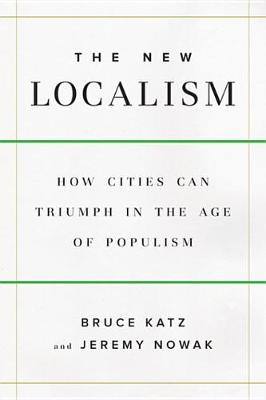Finding local solutions when the nation cannot, or will not.
With the rise of the politics of populism in the United States and much of Europe, how can openness and diversity survive? The answer, according to urban experts Bruce Katz and Jeremy Nowak, lies within communities around the country that have been creating their own solutions to the problems of modern postindustrial societies.
While the United States has struggled unsuccessfully, as a nation, with such systemic problems as decaying infrastructure and rising income inequality, cities in both ""red"" and ""blue"" states have found their own innovative solutions. Even amid the angry populism of the 2016 election, for example, voters in Columbus, Los Angeles, and Seattle alone approved $180 billion in additional local taxes to spur ambitious transit and more sustainable patterns of development.
Solving problems at the local level is not only more practical than wishing for national solutions, it can produce better results through a more democratic process, the authors argue. When decisions are made closer to home, voters tend to become more engaged in the process and thus more invested in the outcome. And public resources can be marshaled more efficiently when they are aligned with local market demands.
This book cites many positive examples of how cities across the United States have taken the lead in dealing creatively with their local problems--even while the national government too often was gripped in partisan gridlock. The authors call for a twenty-first century localism, one attuned to the needs of all citizens, which has the potential to be not just a reaction but also an antidote to the rise of populism and nationalism across the world.
- ISBN10 0815731655
- ISBN13 9780815731658
- Publish Date 9 January 2018 (first published 16 November 2017)
- Publish Status Active
- Imprint Brookings Institution Press
- Format eBook
- Pages 304
- Language English
